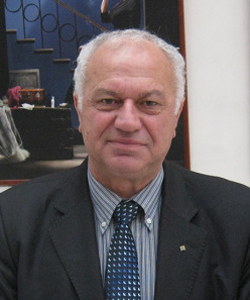An international conference called “Space, Environment, Security” was organized by the Space Research and Technology Institute of the Bulgarian Academy of Sciences in Sofia, November 4 – 6. The event was attended by more than 70 participants from different countries like Bulgaria, Russia, France, Greece, Italy, Macedonia; more than 100 reports were delivered.
Alongside questions like Brownian movement of celestial bodies and how unmanned airborne facilities function, the conference also focused on the application of space research in different spheres of human activity such as monitoring natural environmental disasters, growing plants in space hothouses, the effect of the magnetic field on living organisms and how to apply it as a concurrent therapy for hypertonia and prophylaxis of stroke and infarction, remote oil and gas sensing and probing etc.
 “The conference was dominated by Bulgaria’s accession to the European Space Agency. On the first day, parliament unanimously approved the association and ratification of the agreement, signed by Minister Lukarski several months ago. This means we shall be able to make full use of the potential the Agency offers to space research in Bulgaria,” said Prof. Petar Getsov, Director of the Bulgarian Academy of Sciences Space Research and Technology Institute.
“The conference was dominated by Bulgaria’s accession to the European Space Agency. On the first day, parliament unanimously approved the association and ratification of the agreement, signed by Minister Lukarski several months ago. This means we shall be able to make full use of the potential the Agency offers to space research in Bulgaria,” said Prof. Petar Getsov, Director of the Bulgarian Academy of Sciences Space Research and Technology Institute.
The forum highlighted Bulgaria’s successful cooperation with Russia in the sphere of space research.
“There is a traditional bond of friendship between the two countries. A great many of Bulgaria’s successes are due to our cooperation with Russia. We are the sixth country in the world with an astronaut in outer space and the third country to have begun manufacturing space food. We have two astronauts – Georgy Ivanov and Alexander Alexandrov. And we owe it all to the veterans in the field, who passed us the torch. Our task now is to pass our own knowledge to those coming after us, so that this interesting sphere of science and technology in Bulgaria may continue and develop,” says Prof. Getsov.
Bulgarian experts are currently working on international space research and technology projects for NASA, the Committee on Space Research (COSPAR), the International Accreditation Forum (IAF), the German space agency (DARA) and others, in conjunction with many leading world institutes and universities. The Space Research and Technology Institute’s achievements have earned international recognition – at the recent 9th TESLA Fest - the international festival of innovation and knowledge, in which 400 inventors from more than 25 countries took part - a group of researchers from the Bulgarian institute were awarded a gold medal for innovation in the development of drones.
But there was one highlight at the conference that was a sensation for the general public – Prof. Luchezar Philipov from the Space Astrophysics department of the Space Research and Technology Institute invited scientists from Mexico who brought to Sofia a 50-centimeter mummified body of… an alien. As they say – everyone sees what they want to see.
English Milena Daynova
NATO tests new 'no U.S.' mission model in Balkans NATO is testing its ability to deploy rapidly across Eastern Europe - without direct US support - as Washington shifts its approach to European defence and the war in Ukraine, the Associated Press..
Love blooms with renewed vigour every year on 14 February! Valentine's Day is increasingly being celebrated in Bulgaria as a holiday that inspires lovers to share beautiful moments together. Traditions include the exchange of cards, gifts and romantic..
From February 14 to 16, an event under the motto "Love and Wine" will allow Sofia residents and guests of the city to combine the Bulgarian holiday of wine Trifon Zarezan with Valentine's Day. It will be held on the pedestrian zone..
The festive service for the consecration of the new Bulgarian Orthodox church in London is led by His Holiness Daniil , Patriarch of Bulgaria, who also..
The Martenitsa Festival was held in Brussels f or the third consecutive year . Cultural organizations from Bulgaria, Romania and Moldova presented their..
Measurement equipment installed at the Bulgarian Antarctic base "St. Kliment Ohridski" has been collecting valuable data on solar activity and its..

+359 2 9336 661
